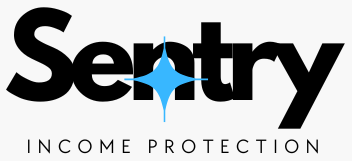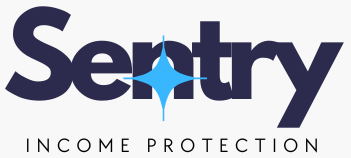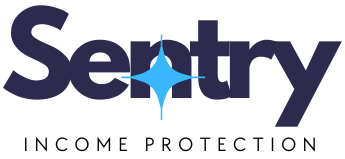Disability Insurance for Self Employed in Texas
Call (469) 905-4422 for a free Disability Insurance quote!
Why Business Owners Can't Afford to Ignore Disability Insurance
As a business owner, you've likely insured your office space, equipment, inventory, and vehicles. You may even carry liability insurance to protect against lawsuits. But have you insured your most valuable business asset, your ability to work?
Unlike employees who can rely on employer-provided disability benefits and paid sick leave, business owners stand alone. If you can't work due to injury or illness, your income doesn't just pause, it stops. Meanwhile, your business expenses, loan payments, and payroll obligations continue. For most business owners, disability insurance isn't just a safety net; it's a fundamental part of protecting everything they've built.
What Happens When You Can't Work: The Real Cost to Your Business
The financial impact of disability extends far beyond lost income. When you can't work, your business faces multiple threats simultaneously.
Immediate revenue loss hits hardest. Whether you're a consultant billing by the hour, a contractor tied to completed jobs, or a retail owner driving daily sales, your absence directly stalls cash flow. Even with capable staff, your expertise, client relationships, and rapid decision making remain irreplaceable in the short term.
Second, your fixed expenses don't stop. Rent or mortgage payments on your business property continue. Utilities, insurance premiums, software subscriptions, and equipment leases all come due whether you're working or not. If you have employees, you'll need to cover payroll to keep your team intact, and you may need to hire temporary help to fill your role.
Third, there's the opportunity cost. Every month you're unable to work is a month you're not growing your business, securing new clients, or developing new revenue streams. For businesses with contracts, your inability to fulfill obligations could result in penalties or lost future opportunities. Your competitors don't stop because you're injured.
Finally, consider your outstanding obligations. Business loans still require monthly payments. If you have partners, your inability to contribute could strain both the business and your relationships. Your family depends on your income, and if you've personally guaranteed business debts, your personal assets could be at risk if the business fails.
Does Your Work Require Physical Labor, Skilled Hands, or Mental Expertise?
The type of work you do dramatically affects both your disability risk and the type of coverage you need.
If you're a contractor, landscaper, electrician, or other tradesperson, your livelihood depends on physical capability. A back injury, knee problem, or hand injury could make it impossible to perform your job, even if you could theoretically do desk work. For physical laborers, the risk of disability is statistically higher, and the need for "own-occupation" coverage is critical.
Skilled professionals like dentists, surgeons, mechanics, or craftspeople face unique risks. Even a minor injury to your hands could end your ability to practice your specialty, despite leaving you capable of other work. A dentist with hand tremors can't simply become a consultant overnight without significant income loss.
Consultants, advisors, software developers, and other knowledge workers face different risks. While less prone to physical injury, they're still vulnerable to conditions like cancer, heart disease, severe anxiety, or cognitive impairments that could make it impossible to serve clients or meet deadlines. For these professionals, partial disability coverage becomes especially important, they may be able to work reduced hours during recovery but still need income replacement.
Understanding your specific vulnerability helps you choose appropriate coverage levels and policy features.
Individual Disability Insurance: Protecting Your Income
Individual disability insurance replaces a portion of your personal income if you become unable to work due to injury or illness. This is the foundation of financial protection for business owners.
These policies typically replace 50-70% of your gross income, up to a monthly maximum, often around $15,000-$20,000 per month for high earners. The benefit pays directly to you and can be used for any purpose, mortgage payments, groceries, car payments, or even to keep your business afloat temporarily.
For business owners, proving income can be more complex than for W-2 employees. Insurers typically require two years of tax returns and may average your income over multiple years. If your income fluctuates significantly, this can be challenging, but it's not insurmountable. Work with an agent experienced in insuring business owners who can present your financial situation effectively.
The waiting period before benefits begin, called the elimination period, typically ranges from 30 to 180 days. Longer elimination periods reduce your premium significantly but require you to have sufficient emergency reserves to cover that gap.
Business Overhead Expense Insurance: Keeping the Lights On
While individual disability insurance replaces your income, Business Overhead Expense (BOE) insurance covers the ongoing costs of running your business while you're unable to work.
BOE policies reimburse specific business expenses including rent or mortgage payments, employee salaries, utilities, equipment leases, accounting fees, and insurance premiums. These policies typically provide coverage for 12-24 months and are designed to give you time to recover and return to work, or alternatively, to wind down or sell the business in an orderly fashion.
This coverage is particularly valuable for business owners with employees, significant fixed costs, or specialized practices that can't simply be shut down temporarily. A medical practice, law firm, or accounting office can use BOE insurance to keep staff employed and the office operational, maintaining patient or client relationships until the owner returns.
BOE insurance premiums are generally tax-deductible as a business expense, though the benefits received are taxable. This is the opposite of individual disability insurance, where premiums are typically paid with after-tax dollars but benefits are received tax-free.
Key Person and Buy-Sell Disability Insurance: Protecting Partnerships
If you have business partners or co-owners, your disability doesn't just affect you, it affects everyone involved in the business.
Key person disability insurance protects the business when an essential person becomes disabled. The business owns the policy and receives the benefit, which can be used to hire a replacement, cover lost revenue, or reassure lenders and investors that the business remains viable.
Buy-sell disability insurance funds a buy-sell agreement, allowing remaining partners to purchase a disabled owner's share of the business. Without this coverage, a disabled partner might remain a partial owner unable to contribute, creating financial strain and potential conflicts. The insurance provides liquidity for the buyout without forcing remaining partners to drain business resources or take on debt.
These arrangements require careful planning and legal documentation, but they're essential for any multi-owner business. They protect all parties by creating a clear, funded exit strategy if disability strikes.
Own-Occupation vs. Any-Occupation: Why Your Job Type Matters
The definition of disability in your policy is perhaps the most critical feature to understand.
"Own-occupation" coverage pays benefits if you cannot perform the substantial and material duties of your own occupation, even if you could work in another capacity. If you're a surgeon who develops hand tremors, you'd receive benefits even if you could teach or consult, because you can't perform surgery.
"Any-occupation" coverage only pays if you cannot work in any occupation for which you're reasonably qualified by education, training, or experience. This is a much stricter standard. That same surgeon would need to be unable to do any medical work, teaching, or consulting before benefits would pay.
For business owners, especially those with specialized skills or physical demands, own-occupation coverage is usually worth the additional cost. Your business is built around your specific abilities, and your income reflects that specialization. Being forced into a different, lower-paying occupation because you can't do your own work would be financially devastating.
Some policies offer own-occupation coverage for a limited period (say, two years) and then switch to any-occupation. Others provide own-occupation coverage for the life of the claim. Understand exactly what you're buying.
Benefit Periods and Elimination Periods: Choosing the Right Timeline
Two timing choices significantly affect both your coverage and your premium: how long you wait for benefits to begin, and how long benefits will continue.
The elimination period is your deductible in time. Common options are 30, 60, 90, 180, or 365 days. A 90-day elimination period means you must be disabled for 90 days before benefits begin. Choosing a longer elimination period can reduce your premium by 20-40%, but requires you to have sufficient savings or other resources to cover that period. Most financial advisors recommend matching your elimination period to your emergency fund.
The benefit period is the maximum length of time the policy will pay benefits. Options typically include 2 years, 5 years, to age 65, or to age 67. Longer benefit periods cost more but provide protection against long-term or permanent disability. For business owners in their 30s, 40s, or early 50s, coverage to age 65 or 67 is usually recommended, as a disability lasting several years or decades could be financially catastrophic.
Consider your age, financial reserves, and risk tolerance when making these choices. A 35-year-old with a young family has different needs than a 55-year-old with significant assets and a near-retirement timeline.
Partial Disability and Residual Benefits: Working Part-Time
Disability isn't always black and white. Many conditions allow you to work reduced hours or in a limited capacity.
- Partial disability benefits pay a reduced benefit if you can perform some but not all of your job duties.
- Residual benefits pay a proportional benefit based on your income loss, if your disability causes you to earn 40% less income, you receive 40% of your full disability benefit.
For business owners, these features are particularly valuable. You might be able to take on consulting work but not full client loads, or manage your business part-time while recovering. Without partial or residual benefits, you'd face an all or nothing scenario: work full-time or receive full benefits, with no middle ground during your recovery.
Many policies require a period of total disability before partial benefits kick in, while others allow you to claim partial benefits immediately. Understanding these nuances helps you choose coverage that matches your likely recovery scenarios.
What You'll Actually Pay: And What Affects Your Premium
Disability insurance premiums vary widely based on multiple factors, but business owners should generally expect to pay 1-3% of their net income for comprehensive coverage.
Age is the primary factor. Younger applicants pay significantly less because they're statistically less likely to become disabled, and will pay premiums for more years. A 30 year old might pay $100-150 per month for $5,000 in monthly coverage, while a 50 year old might pay $300-400 for the same benefit.
Your occupation class matters enormously. Insurers rate occupations from 1 (highest risk) to 6 (lowest risk). A software consultant (class 5-6) pays far less than a general contractor (class 2-3) for the same coverage. Your specific job duties, not just your job title, determine your classification.
Health and lifestyle affect your rates. Smokers pay substantially more. Pre-existing conditions may be excluded or result in higher premiums. Even hobbies like rock climbing or motorcycling can increase rates.
Gender plays a role. Women typically pay 20-50% more than men for the same coverage because they statistically file more claims and claims last longer on average.
Policy features dramatically affect cost. Own-occupation coverage costs more than any-occupation. Shorter elimination periods increase premiums. Riders like cost of living adjustments, future purchase options, or student loan riders add to the cost but may be worthwhile.
Why Workers' Comp and Health Insurance Aren't Enough
Many business owners mistakenly believe they're already covered. They're not.
Workers' compensation only covers injuries that occur while performing work duties. It doesn't cover illnesses like cancer, heart disease, or mental health conditions. It doesn't cover injuries that happen outside of work, even if you're injured playing weekend basketball and can't work for six months. Additionally, workers' comp coverage for business owners is often optional or limited, depending on your state and business structure.
Health insurance pays medical bills, but it doesn't replace your income. Even with good health insurance, you'll still face lost income, ongoing business expenses, and the inability to pay personal bills if you can't work.
Social Security Disability Insurance exists, but it's extremely difficult to qualify for, requires a severe disability expected to last at least 12 months or result in death, has a five-month waiting period, and pays modest benefits (the average is around $1,500-$1,800 per month). For business owners with substantial income and expenses, SSDI alone is woefully inadequate.
Personal savings and investments can help, but depleting your nest egg to cover a disability means starting over financially after you recover, if you recover. It also eliminates your safety net if disability becomes permanent.
How to Assess Your Coverage Needs Based on Your Business Type
Start by calculating your monthly financial obligations. Add up your personal expenses, mortgage or rent, utilities, food, insurance, car payments, childcare, and other necessities. Then add your business overhead if you plan to keep it operating, rent, employee salaries, loan payments, and fixed costs. This total represents your minimum monthly need.
Next, consider your emergency reserves. How many months could you survive without income? This determines your appropriate elimination period. If you have six months of expenses saved, a 90- or 180-day elimination period makes sense. If you're living closer to the edge, a 30- or 60-day elimination period might be necessary despite the higher cost.
Evaluate your occupation type and income stability. Physical laborers and skilled tradespeople should prioritize own-occupation coverage. Knowledge workers might accept modified definitions for lower premiums, but should carefully consider the tradeoffs. If your income varies significantly year to year, work with an agent who can structure coverage appropriately.
Consider your business structure. Sole proprietors primarily need individual disability insurance. Those with employees or significant overhead should add BOE coverage. Partners should implement key person and buy-sell arrangements.
Think about your stage of life. Younger business owners building their enterprises need longer benefit periods and should consider future purchase options that allow them to increase coverage as their income grows. Those closer to retirement might accept shorter benefit periods or reduce coverage as they accumulate assets.
Finally, get quotes from multiple highly-rated insurers. Disability insurance is not a commodity, different companies have different definitions, exclusions, and underwriting approaches. Work with an independent agent who represents multiple carriers and specializes in business owner coverage.
Your ability to work is the engine that drives your business and supports your family. Protecting that ability isn't optional, it's essential. The time to secure coverage is now, while you're healthy and insurable. Tomorrow might be too late.
Call (469) 905-4422 for a Free Disability Insurance Quote!












